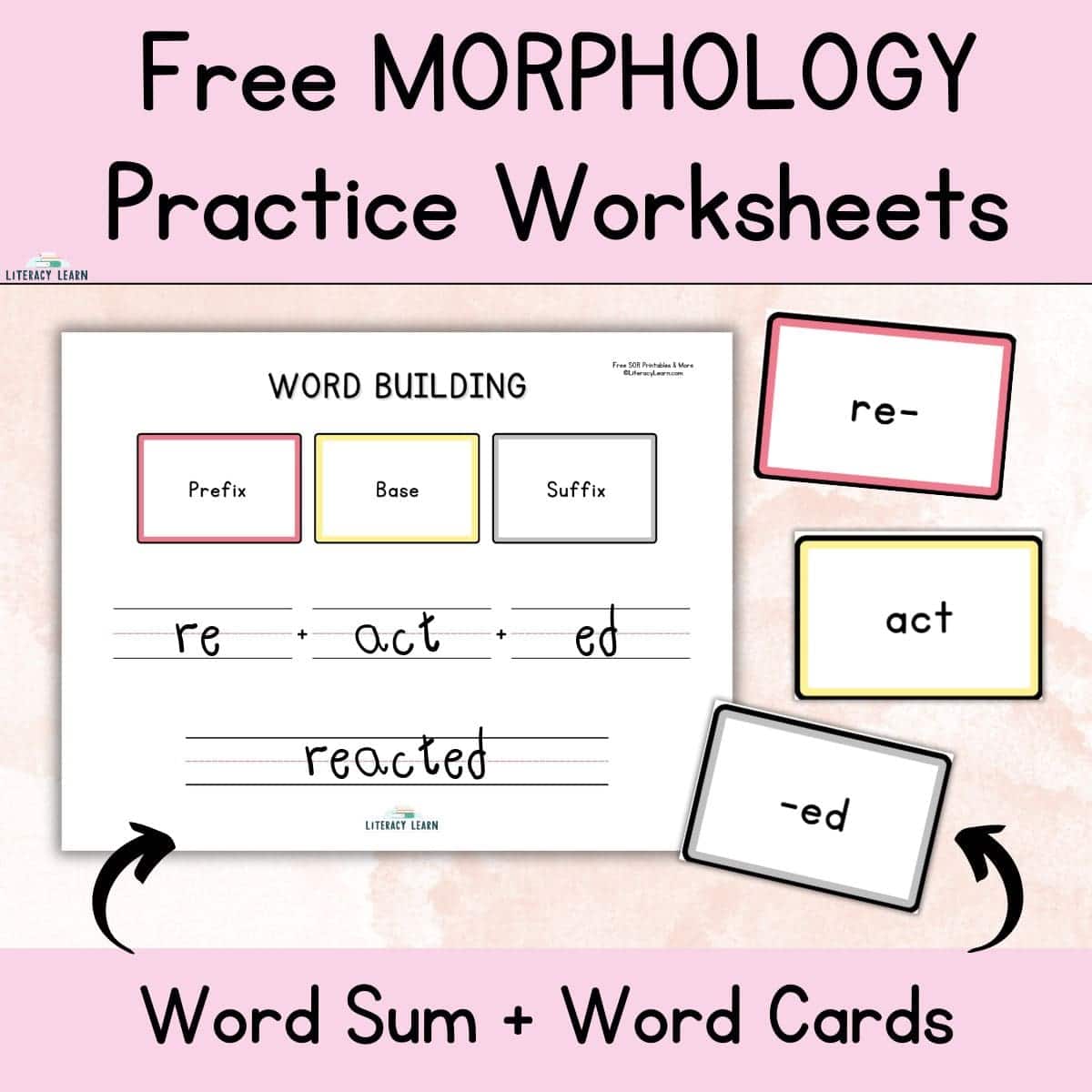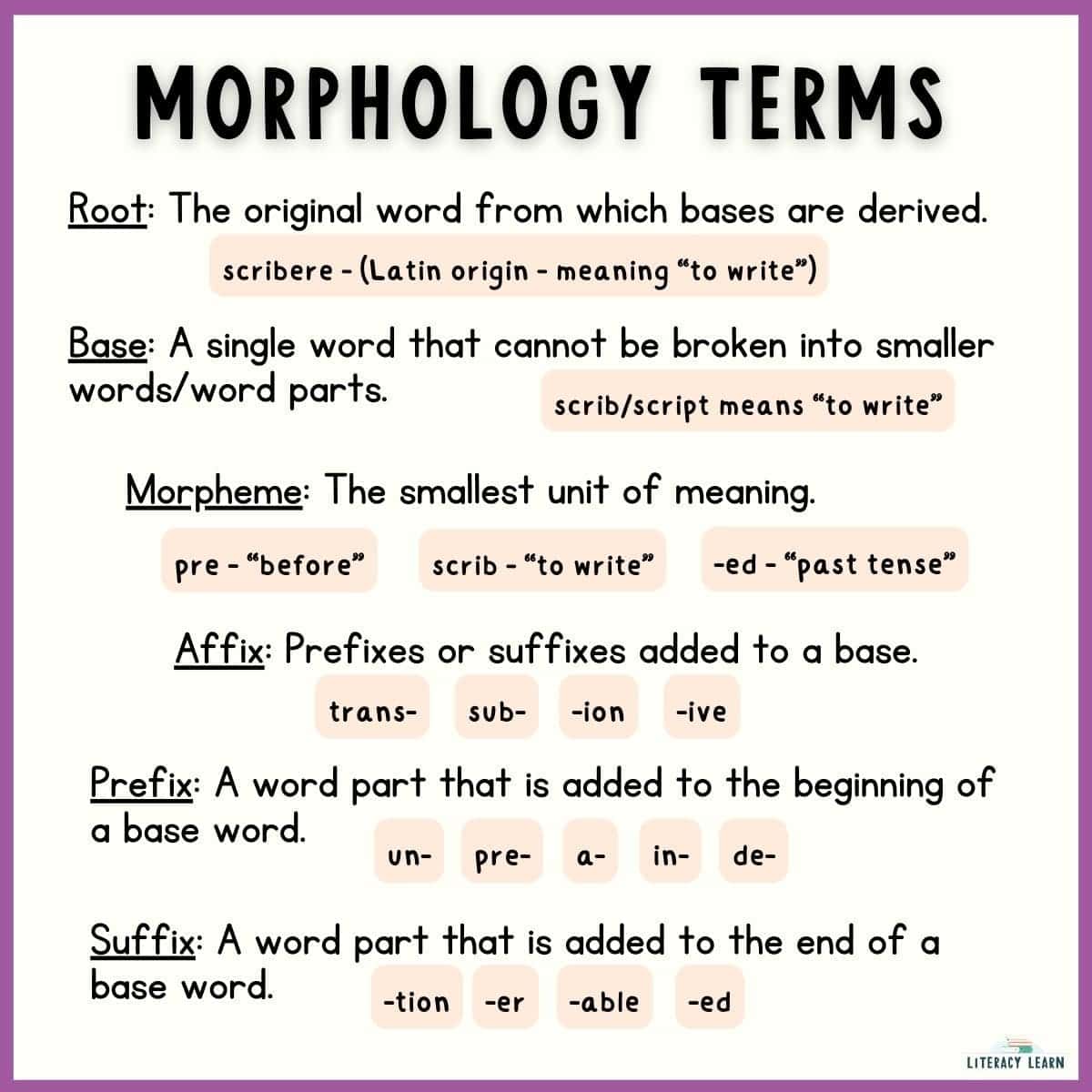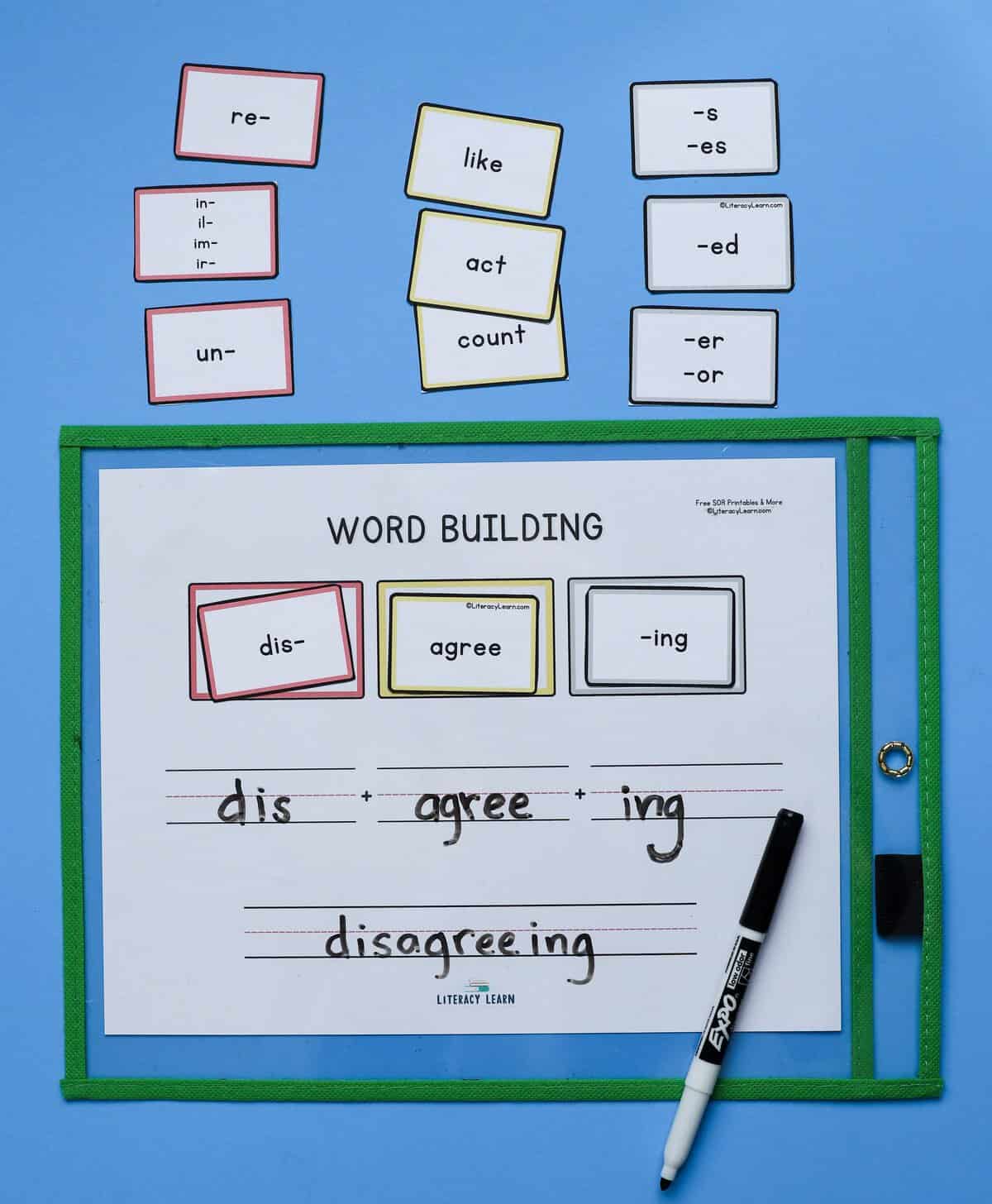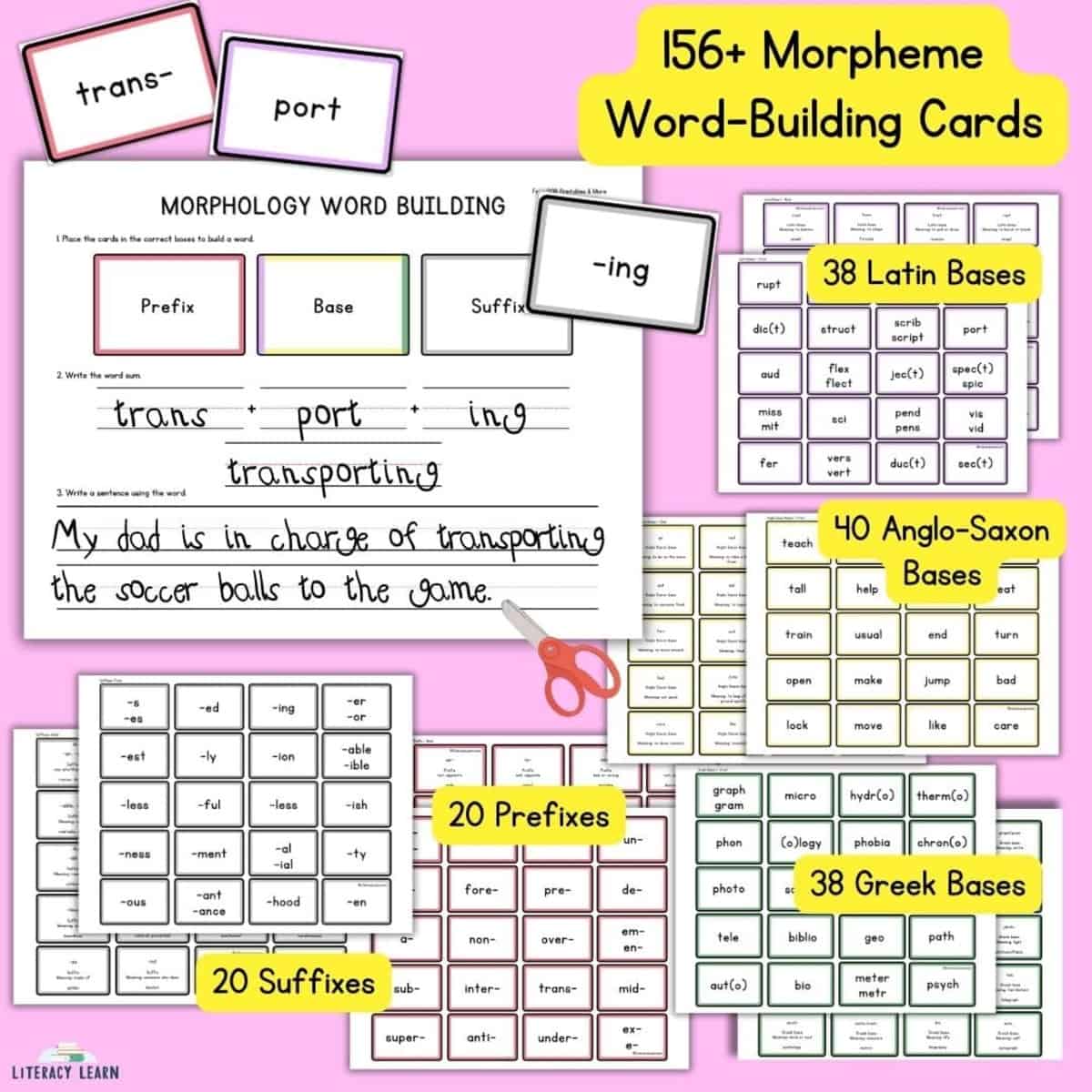Free Morphology Worksheets: Prefixes, Suffixes, Bases
This post may contain affiliate links. As an Amazon affiliate, we earn from qualifying purchases.
Get these FREE morphology worksheets to help students deepen their vocabulary knowledge by analyzing words by looking at morphemes. Get printable word cards with prefixes, suffixes, and bases PLUS a reusable word sum worksheet.

Why Teach Morphology?
Morphology is a term that relates to the study of word structure and its meaning.
Morphemic analysis is the term for breaking down word parts to derive meaning. In order to do this, we must look at morphemes, or word part clues! These include bases (Greek/Latin/Ango-Saxon) and affixes (prefixes/suffixes).
The National Reading Panel (2000) identified morphemic analysis as an effective word-learning strategy. That means it should definitely be a part of all students’ literacy instruction!

Timothy Shanahan has a very helpful blog post entitled, What Morphology Instruction Should Look Like. In this post, he recommends beginning morphology instruction using words kids already know.
Then, using those word families to make connections between words to expand vocabulary knowledge.
For example, you can start with the base word ‘power.’ Then, you can add morphemes to change the word and begin to analyze how the meaning changes. Other words that are a part of this word family includes…
- powerful
- overpowering
- superpower
- empower
- powerless
- manpower
After you’ve spent lots of time discussing and teaching word parts, teachers should explicitly teach Greek bases and Latin bases.
How to Use Word-Part Clues
Leading literacy experts Timothy Risinski and Nancy Padak (2017) say that “[t]eachers at all grade levels and content areas can provide instruction in Greek and Latin roots to develop students’ vocabulary.”
This means that teachers must provide explicit instruction in word-part clues (morphemes). Kids must learn…
- The meanings of word parts (prefix e- means out/away, Latin base rupt means to burst/break, suffix -s means 3rd person singular)
- How to break apart words into word parts (erupted = e + rupt + s)
- How to put words parts back together to form meaning (erupts means bursts or breaks out)

To summarize, kids need to look for base words, prefixes, and suffixes in words. Then, they must ask themselves… “What do each of those word parts mean? “
Then, they must put the meanings together to determine the meaning of the whole word.
🚀Looking for more? Read about the importance of exploring morphemes with your students, and get our free worksheets to help!
Free Word Building Worksheets

These free morphology printables are designed to help build your students’ knowledge of common morphemes. To help with your instruction, the resources include:
- Reusable word sum worksheet
- 4 prefix cards ➡ dis-, un-, re-, il-/im-/in-/ir-
- 4 suffix cards ➡ -ed, -ing, -s/-es, -er/-or
- 4 Anglo-Saxon bases ➡ act, agree, like, count
💯This is the perfect resource to introduce students to structured word inquiry. Read our blog post to learn all about word sums, and then grab our free and customizable word matrix, too!
Using the Worksheets
This activity works best in pairs or a small group. An essential component of word inquiry is talking about the words and their meanings.
This type of activity helps to strengthen oral language while building vocabulary and deepening comprehension.
Printing Info: Print the word part cards double-sided. Then, cut the cards and laminate them for extended use. Print the word sum worksheet and place it in a reusable sleeve so kids can use it over and over again to build many words.

Looking for more? If you love this resource, grab the expanded version of our Morphology Word Cards.
It includes 156+ prefix, suffix, and base cards and includes tons of common Greek and Latin bases.
Recommended Resources
- All About Phonemes, Graphemes, and Morphemes
- 3 Sounds of Suffix – ed Poster
- Science of Reading Morphology Poster
- Best OG Training Options
- Science of Reading Professional Training
References:
- Diamond, L. and L. Gutlohn (2019). Vocabulary handbook: core literacy library. Paul H. Brooks Publishing.
- National Reading Panel (U.S.) & National Institute of Child Health and Human Development (U.S.). (2000). Report of the National Reading Panel: Teaching children to read : an evidence-based assessment of the scientific research literature on reading and its implications for reading instruction. U.S. Dept. of Health and Human Services, Public Health Service, National Institutes of Health, National Institute of Child Health and Human Development.
- Rasinski, T. and N. Padak (2017). The roots of comprehension. ASCD (Advance and Elevate Learning).
- Shanahan, T. (2018) What should morphology instruction look like? Shanahan on Literacy.
Download & Print
DOWNLOAD TERMS: All of our resources and printables are designed for personal use only in homes and classrooms. Each teacher must download his or her own copy. You may not: Save our files to a shared drive, reproduce our resources on the web, or make photocopies for anyone besides your own students. To share with others, please use the social share links provided or distribute the link to the blog post so others can download their own copies. Your support in this allows us to keep making free resources for everyone! Please see our Creative Credits page for information about the licensed clipart we use. If you have any questions or concerns regarding our terms, please email us. Thank you!


Thanks!
You’re very welcome. Hope your students benefit from them.
Katie & Laura